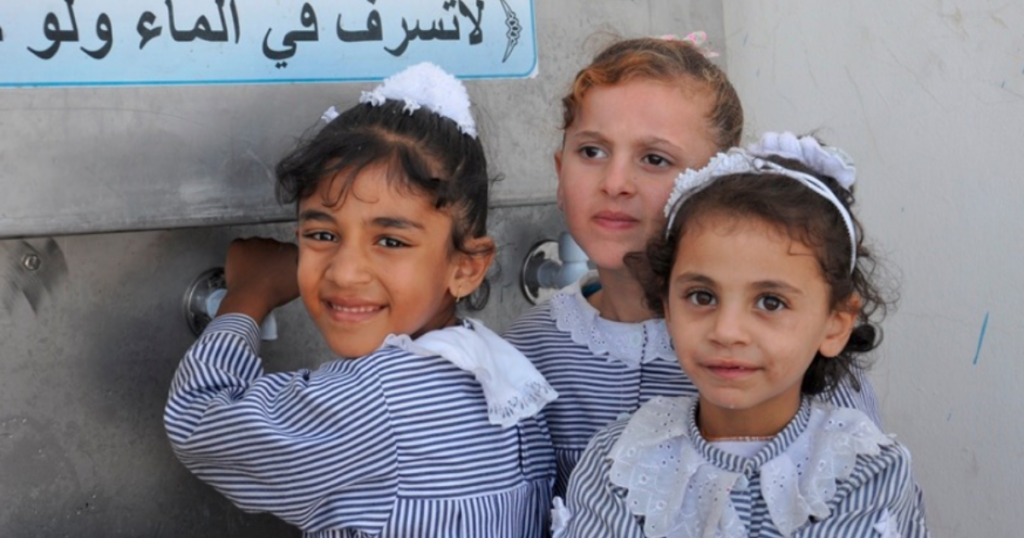You’ve invested $100,000 in to deliver three new water systems in elementary schools and to give children a rare and precious opportunity to play
MEET GHADA, an engineer—and a new mom to a five-month-old baby girl—living in Gaza who advocates fiercely for the rights and well-being of children there. Ghada works for Middle East Children’s Alliance, whose life-saving work you’ve invested $100,000 in to deliver three new water systems in elementary schools and to give children a rare and precious opportunity to play.
She recounts last month’s lethal airstrikes:
“This was [my daughter’s] first time hearing the sound of rockets approaching and explosions. This was her first time hearing the cries and screams of other children in fear.
I tried my best to comfort her, to make her feel safe by holding her to my heart, but I was terrified all the time of putting her down. What if I am unable to protect her? What if something happens to me as happened with other mothers who were unable to protect themselves, let alone their children?
This feeling of utter helplessness and fear is brutal.”
Ghada knows firsthand that for Palestinian families and children in Gaza and the West Bank, the “feeling of utter helplessness and fear” is constant. They do not know when another one of Israel’s air strike attacks will hit, when another child will be arrested and detained, when another loved one will be killed.
Nineteen children were killed in last month’s airstrikes alone.
The compounding trauma of decades of brutal violence and conflict has devastated children and families. Four of every five children feel emotional distress, including fear, nervousness, sadness, and grief, according to the latest available data from Save the Children. Nearly 80% experience bedwetting and 60% reactive mutism, both of which are significant trauma responses.
Virtually all caregivers—ninety-six percent—feel unhappy and constantly anxious.
Led by a Palestinian refugee, and through psychological and holistic support, Middle East Children’s Alliance gives the children the opportunity to play. They create art. They clap and dance. They race down slides. They get a break from worrying, from the anxiety that consumes the rest of their days. They rest.
In addition to emotional support, families and children in Gaza are in desperate need of safe water. An estimated 97% of the water extracted from Gaza’s coastal aquifer—the only source of water for more than two million people—is undrinkable.
It is difficult for water contaminated with sea salt, agricultural runoff, and untreated sewage to be made usable with so much of the infrastructure for water having been completely decimated. Airstrikes have turned what used to be water treatment plants into rubble in a matter of seconds. Without reliable electricity, municipal taps are rendered useless.
Families are forced to purchase water from private vendors, which can cost as much as a third of a household’s income. Yet an estimated 80% of that privatized water is still contaminated.
Albeit difficult, it is possible to deliver safe water to these children. That’s where Ghada, who leads MECA’s Maia Project, steps in. Named after the Arabic word for water, the Maia Project has helped more than 68,000 elementary age children gain access to safe water over the last ten years.
Your investment makes possible the installation and maintenance of three new water systems in elementary schools. These systems will desalinate and purify the contaminated water, making it safe for the children to drink.
While much of the world looks the other way, you refuse to. Thank you for harnessing heartbreak into help for these children and families, for Ghada and more moms like her.



